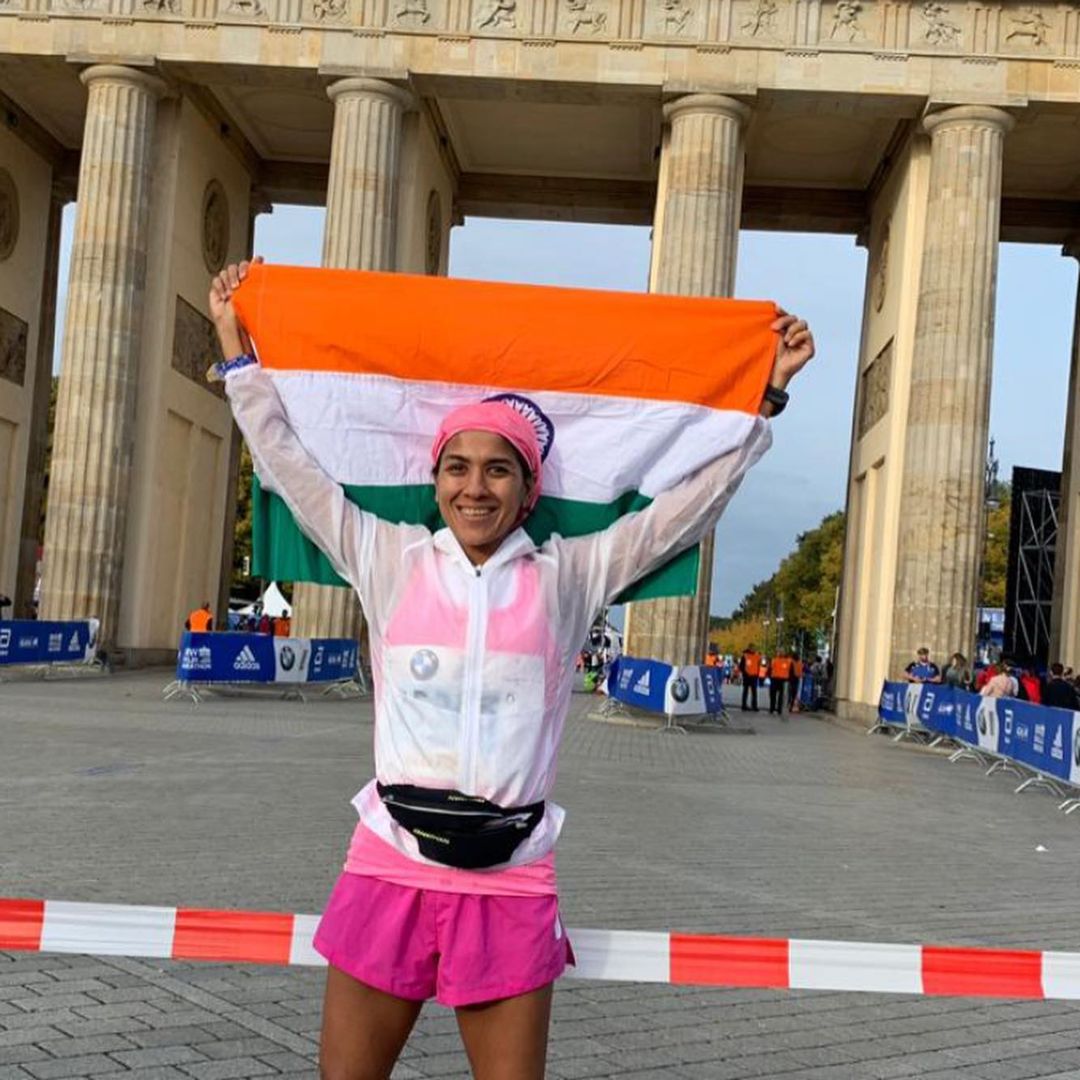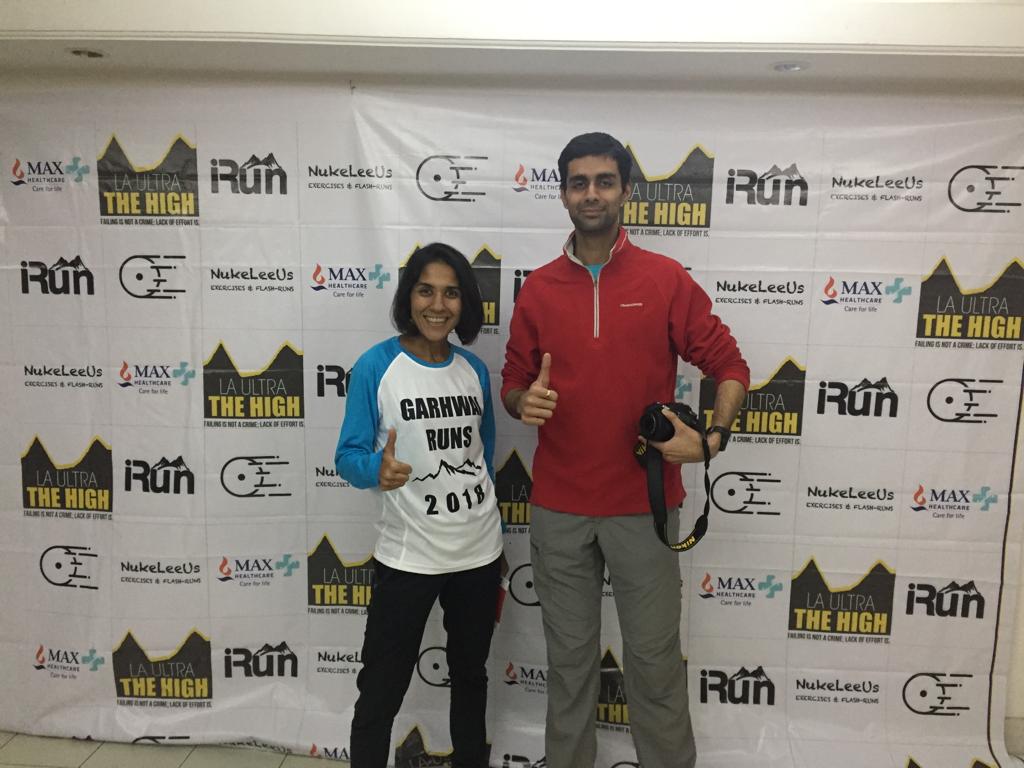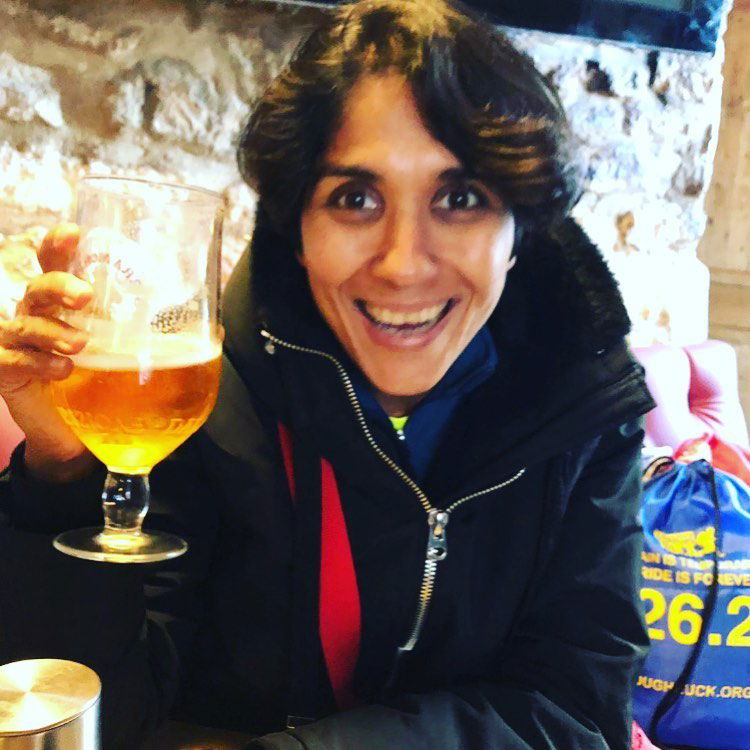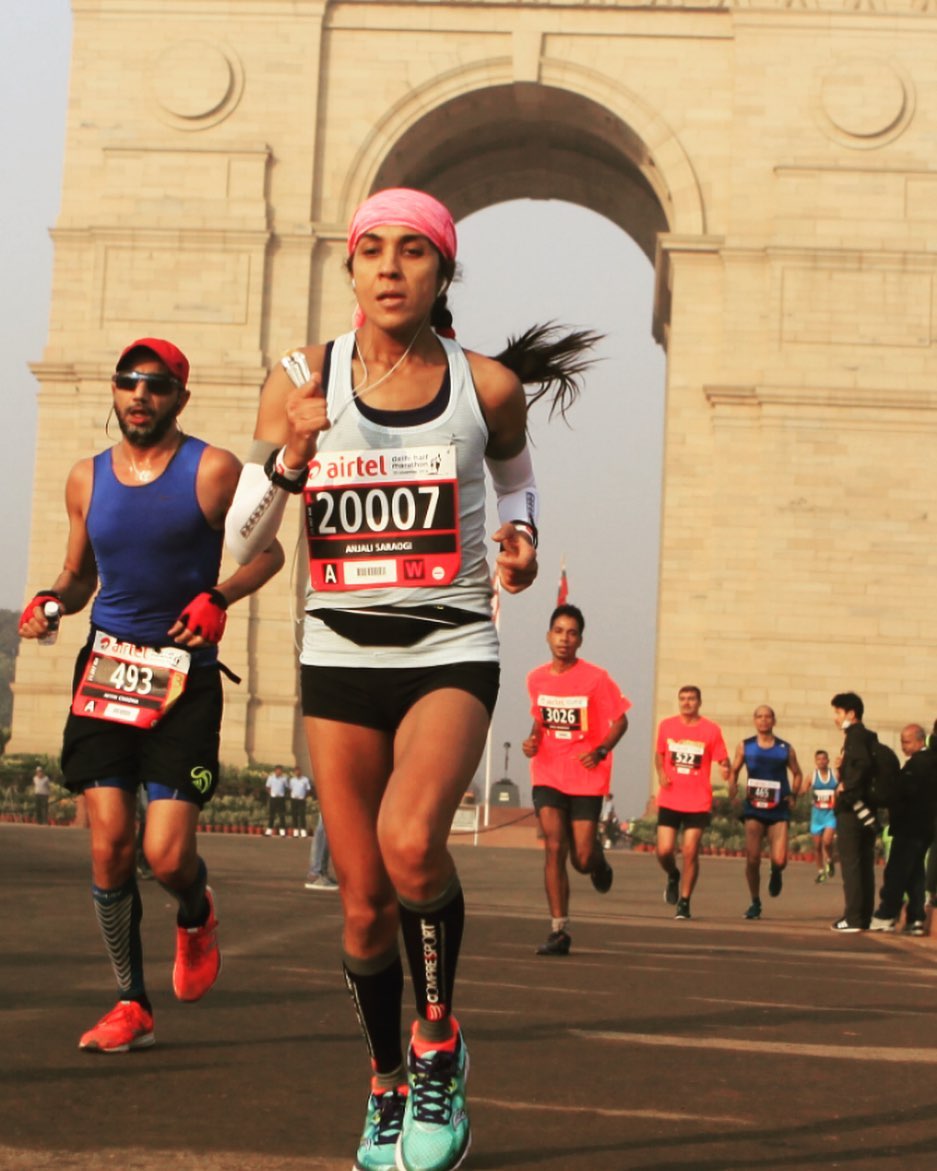
Several articles have been written on Anjali’s journey from a casual runner to being India’s best ultra-marathon runner. What I couldn’t find is how she did it?
46 year old Ultramarathon runner pushing boundaries, 100 km at a time
Anjali Saraogi - A First Timers Journey
I wanted to uncover her toolbox. How she thinks and approaches her sport?
My curiosity led to an in-depth conversation on how she train her mind & body.
Here are snippets of our conversation for you to become better in your sport.
Subscribe to Trek Library and get premium content, free.
Accomplishments
Mumbai Half Marathon 1:44
Comrades (Up) Indian Best 8:38
Boston Marathon 3:14
100 km Indian Record x 2 (2018, 2019)
Ultra Runner Award (twice) by Athletics Federation Of India
Everest Base Camp, Gokyo Ri, Kang Yatse II (advance base camp)
Successful entrepreneur
Background
When I was a kid, I was fat. But not unfit. I was extremely fit but because I loved to eat, I was fat. I used to swim, I used to do a lot of workouts, home workouts, you know, those body weight workouts. And those exercises, we all did as kids and I just loved it. But I had this huge complex that I'm fat. So I never took part in any school activities.
I would want to run and something inside would always tell me that if I run, I could run fast. But I never took part in school sports just because I thought people would laugh at me.
My father is extremely dedicated and he's a very fit person. He's in his late 70s but he does yoga every day for one hour. Goes for a morning walk. My mother who's also in late 70s, does a headstand. So yoga has been a part of my life since childhood. Fast forward, my daughter is born and I gained 20-22 kilos, I needed to lose weight. So I started walking five times a week for just five kilometers a day. A jog-run because back in 90’s and early 2000’s it was not acceptable for a woman to wear shorts and run in the park. Going out on the street wearing shorts impossible, I didn't even have shots.

Workouts
So, for running, I'll not put in hours, I'll put in kilometers because it depends on the kind of run you do and your paces keep varying, as your fitness keeps improving. And as for what your goal of that training run is right? So pace is not important. The number of kilometers I'd say is more relevant to me. So while training for a marathon, I would typically train for 90 kilometers and my peak months would be between 120 to 130 km. And while training for an ultra, I have typically trained up to 140 km and a few weeks of 140 to 150 kms for my peak weeks.
If you build a good base then training could be shorter but more effective. Right. So for my first marathon I took six months. So from scratch to six months and I did not hit 90 in the first first marathon itself. I built up to 90, which I could hold consistently maybe in the last month.
I'd never run more than six times a week, sometimes five. I would split my runs accordingly.
Only when I did ultra training my mileage crossed 120 at times. I did double runs. Morning-evening-morning. So that way, you're used to running on fatigue legs.
I typically do which I've done from from the start, strength work for 30 to 40 minutes twice a week, yoga twice a week.
Akhil: Was that sufficient to avoid injury & keep muscles well stretched?
Oh yes, I think so, though, I think stretching is overrated. Stiffness comes from lack of strength. So, I focus more on strengthening. I'm not one who believes too much and stretching, and that too static stretching. I never do that. Like a lot of people are stretching before the race. I think going for a light jog works for me and not static stretching. I don’t believe in yoga for stretching. I do more for mobility for range of motion in the joints.
Mental Preparation
The most important factor is the reason why you're pursuing this activity. If it is something that's coming out of a passion and love and you're doing it for yourself, then you can endure pain and suffering with no limits. Of course, pain is pain but it's how we choose to perceive it.
When I would train and I would do those speed intervals, which I used to hate, I think everybody hates them. I know that I have to do it. I dread them from the night before, I dread them in the morning, but I go through it simply because my desire to benefit from was so strong. The pain would be irrelevant. My body would not focus on the pain because my goals was so so much more powerful in front of me.
Akhil: Sometimes when we are in a very difficult situation we quit because we care more about the pain we are enduring than reaching that goal.
If I'm truly in physical pain because of injury or because I pulled a muscle, that is listening to your body. But many times we quit because of the pain which is lying ahead of us. In the 80th kilometer I'm in a lot of pain and I know the 81st kilometers gonna hurt me more.
I have trained my mind to process that pain. Firstly, I have to imagine the pain and then have the equipment, the mental equipment and strength to deal with it. If I have armored myself with that strength, I can deal with it.
For me, it's visualization exercise because I have always trained on my own and I've put in a lot of efforts. The end of a marathon, like, from the 38 to the 42 kilometers have always been the hardest for me. But if I've been mentally prepared, oh then, I've been able to handle it. Because it's not something that my body is experiencing for the first time. Even the first time that I ran in Chicago, I had mentally prepared myself.
When I sleep at night, I always visualize what I'm going to feel in my training run, whether it's a hard tempo run or whether it's speed training or whether it's in the final race. I think if you're mentally equipped yourself To accept the pain and go ahead, it sets you free.
Akhil: Our common friend Abhishek Duttagupta who we both know is an excellent climber visualizes the climb almost four to five months before he actually climbs. I mean, he studies the route so in depth that at any given point at any given day he can tell you where we are, how much more attitude is to be gained and how much time it will take.
Absolutely. So you either prepare to succeed, or you prepare to fail, there's no by chance in any extreme physical pursuit.
Subscribe to Trek Library and get premium content, free.
Nutrition
I'm a very simple person. I don't believe in fancy foods or diets. I eat normal simple, ghar ka khana. I'm vegetarian and in the recent years I don't even eat egg. So I eat home cooked food. I try not to eat out. My breakfast is normally cooked chana and fruits. Sometimes I'll have toast if I've done a lot of running. Lunch is roti, sabzi, dal. Dinner is the same. Snacking is nuts, fruits. I eat chocolates, a lot of chocolates, which I try to cut down, but then, I enjoy it.
Akhil: No Aloo Ke Parathe on Sundays?
No, actually because Sunday mornings are the worst since I…
Akhil: Let me guess, since you go for a long run.
Yes. So Sunday mornings are typically South Indian breakfast because it's a brunch.
Akhil: What supplements do you take to compliment your diet and training?
I'm pretty on top of that because I when I used to train a lot, I used to do my blood work every four to six months. I've had so many hormonal fluctuations, that's another reason why I'm on top of my blood work and vitamins. I'm very careful about that. And, you know, lack of vitamin D is kind of an epidemic in our country. So that's something I monitor. Iron levels which I think everyone including men should keep an eye on especially since you tend to lose iron while running.
I take BCAA while running, It has helped me a lot especially in my long runs. It kind of keeps me going and I don't feel the need to have too much water or too much of sugar. Post run I have a protein shake.
How do you prevent injury? Do you get demotivated when you are injured?
I think, um, more than demotivating you feel a vacuum because we all have a morning routine. Right? If I'm waking up at 4:30, I know by 5:30 I'm running, I'm not going to be home till seven, eight, nine, whatever my run that day is. Your body feels a certain way. You eat certain amounts of food, your lifestyle is in a certain way, you sleep at a certain time because you're so tired. And you have to wake up again next morning. If you're not going to be running for those few weeks, then you have a lot of time in your hands and your entire biological clock, kind of goes for a toss because you're not used to staying awake to maybe 9:30, 10 PM.
I think I've always felt a vacuum but sometimes small injuries have kind of been a blessing because they force you to rest.
Akhil: How do you stay connected to the game in that downtime? Do you read?
I read all the time whether I'm injured or not. I have more than 70 books. I have read so many books on running. I love to read about running. I love to read about anything inspiring. I love to read about mountains. I love to read about the outdoors. I love to read all kinds of books.

Subscribe to Trek Library and get premium content, free.
Are you a beer or wine person? 🙂
So even in my peak training, when I've trained a lot, I loved to drink wine. I love to drink beer but I never overdo it. So I might have a beer, maybe three times a week but I drink one beer.
Or I might have wine, also maybe three, four times a week, but one glass or maybe one and a half glasses but never too much and I never drink on an empty stomach my and and I drink because I enjoy the taste not to get drunk.
I don't think there is anything wrong and I've never felt that it's taken away from my training.
Where else have the benefits of running transferred in your life - parenting, business?
I think my style of parenting has been the same but me, as a human being, I feel that I have benefited a lot because the first thing that running throws into your life is disciplined.
I was always an organized person, but this grueling training has made me more disciplined. And I've been able to to value the little things more, in life, I've become more tolerant, patient and that goes a long way because you handle all relationships better, whether it's in my workplace, whether it's with my family, and whether it's with myself.
If there was a biography written on you, what would the title of the book be?
I think that's a tough one, one title could be ‘Love Is Power’ because I love to run and I have had very challenging situations in my life and I have run despite them and I've also been victorious on a global stage, despite them. I feel it's all because of true love and true passion. A love of my family and my passion for running, which has given me the power.
Another could be ‘Why Not Try?’. I didn't know what the outcome in Croatia would be. But why shouldn't I try? Why should I think I'm not good enough? Why should I quit? Unless we really have to, and I think a lot of us, don't give ourselves the chance to reach our full potential out of fear. And doubt. And that I feel kills more dreams than our failures will ever do.

What are your future adventure / fitness goals?
So, there is a lot that I want to do, of course, I am someone who thrives in the face of challenge. One is I need to go back and climb Kang Yatse II. Yeah. I missed the summit. I need to go back there. When I can make the time and build my fitness again, I am going to go back and finish KYII. And I want to do Dzo Jongo together.
Then I want to run 24 hour race. I have never done that. It's 24 hour, stadium run. So it's on my bucket list.
What has been your best recent purchase under 1000/-?
I just bought a kettlebell. It's only a six kilo kettlebell. And I use it to strengthen my shin. I'm a bit of a hoarder because I have many kettlebells Have a four kilo. I have a five kilo. I have a six kilos. deals. I got it for 900 bucks.
What are you currently reading?
So I recently read Ikigai. Japanese concept, very powerful because we all know that the Japanese people are so fit, they look so young, are exuberant and they live long. So, a lot can be taken away from that book.
If you read a lot of those people do a lot of gardening, they're proximity to nature. So I think gardening is very therapeutic. So, I've been trying to do a bit of gardening also. The mud in your hands makes me more human. The way kids are brought up nowadays, how many kids are going to a park? And even in the park, they're not touching mud. Maybe sand in the school.
We used to play in the mud and now at the age of 49, I have reconnected after reading ikigai and I'm trying to do some gardening.
Closing Remarks
Akhil: Anjali, you’re making the rest of us look bad. You're approaching 50 and honestly you don't look a year older than 35. Does running have something to do with?
Anjali: Honestly, I don't think it really works that way because what everyone tells me is that my face is wrinkled up, all because of running. Because of the sun. But anyway it's something I love to do. So I really don't care and aging is never been a factor that I've ever thought about. So, it's quite irrelevant to me.
You can find her on Instagram.
Thank you, Anjali.
Subscribe to Trek Library and get premium content, free.
